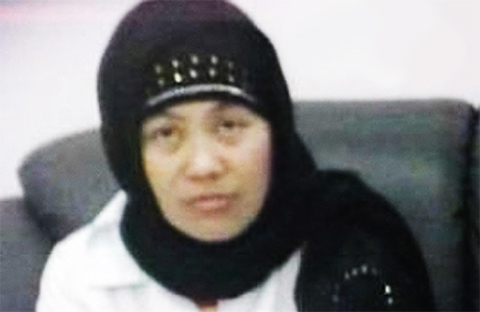Villa expresses sadness on Filipina’s execution
 Philippines’ Ambassador Renato Villa
Philippines’ Ambassador Renato VillaKUWAIT: “We will push harder for a moratorium to be imposed on Filipino domestic helpers,” said Philippine Ambassador to Kuwait Renato Pedro Villa as he reacted on the execution yesterday of Jakatia Pawa, a domestic helper who was found guilty in 2010 for killing her employer’s daughter.
Speaking to Kuwait Times at the embassy yesterday, Villa said he will push harder for the moratorium that has been lying on the table of the Philippines’ Department of Foreign Affairs and the Department of Labor and Employment for years now. “I think it’s about time. We need to protect our workers,” he said.
Villa said as of last month, the number of Filipinos in Kuwait reached 250,000, of whom 158,000 work as domestic helpers. “The deployment of our workers continues; in fact arrivals per month total 3,500 domestic helpers. This is huge, so we need real and genuine protection for our OFWs, as they are vulnerable to mistreatment and abuse by employers,” he said.
 Jakatia Pawa
Jakatia Pawa‘Not guilty’
Pawa always maintained she was not guilty of the crime, according to Villa. “Pawa supposedly stabbed her victim several times with a kitchen knife while she was asleep at dawn on May 14, 2007. The murder knife which was found at the crime scene did not match Pawa’s DNA, although a glove found at the crime scene had her DNA. The court has its own evaluation of the evidence, and is based on their findings and the record of her case. At the end, we respect Kuwait’s court decision,” he said.
Villa recalled his last conversation with Pawa at the Central Jail immediately after learning that her name was included in the list of people to be executed yesterday. “I was stunned because we were not informed ahead of time. We were only informed about the hanging on Tuesday afternoon. At least we managed to talk to Pawa.
In the morning, we went to the Central Jail to look for other possibilities, but we were not allowed to enter the execution area. Only after her death were we informed that Pawa was executed at 10.19 am. After learning about the execution, we went to the Ministry of Foreign Affairs so we could arrange and claim her remains. But Pawa’s family decided on burying her in Kuwait in the Muslim tradition,” he said.
“When I spoke to Pawa yesterday, she was very sad, but she had already accepted her fate. She said she had spoken to her family back home,” Villa recalled. “We did our best to save her from the gallows, but the mother of the victim refused to forgive her. His Highness the Amir can only bestow a pardon when the ‘tanazul’ (waiver) is signed.
We asked for a reprieve and hired lawyers to help us on Pawa’s case. The idea of the lawyer, since the sentenced was already upheld by the court, was to talk to the family of the victim. The tanazul wasn’t signed, so we tried to negotiate in backchannels by talking to an imam, but the mother still refused to grant forgiveness, even though we promised to build a mosque and madrasa in the name of her daughter in Mindanao,” he said.
No avail
In 2010, then vice president Noli de Castro was sent to Kuwait to appeal for Pawa’s life, to no avail. Pawa, 44, was a native of Zamboanga Sibugay. She is survived by two children aged 18 and 16. Pawa had a degree in banking and finance from Zamboanga private school, but she worked as a domestic helper in Kuwait. She worked for the same employer for five years till the crime took place in 2007. Pawa was a Muslim by birth and so keeping with her faith’s tradition, her body was to be buried before sunset. There are two more Filipinos in Kuwait on death row.
“The sentence of one of them has been commuted, while the other is under appeal. I am sad that some of our kababayans are involved in such cases. I urge everyone to follow the local laws here and avoid being involved in such crimes. Also, as we speak, we have 60 more cases of drug related incarcerations of our fellow kababayans in local jails here. Although we are helping them; the best way is to avoid getting in trouble. Follow the laws and rules in Kuwait,” he advised.
By Ben Garcia










